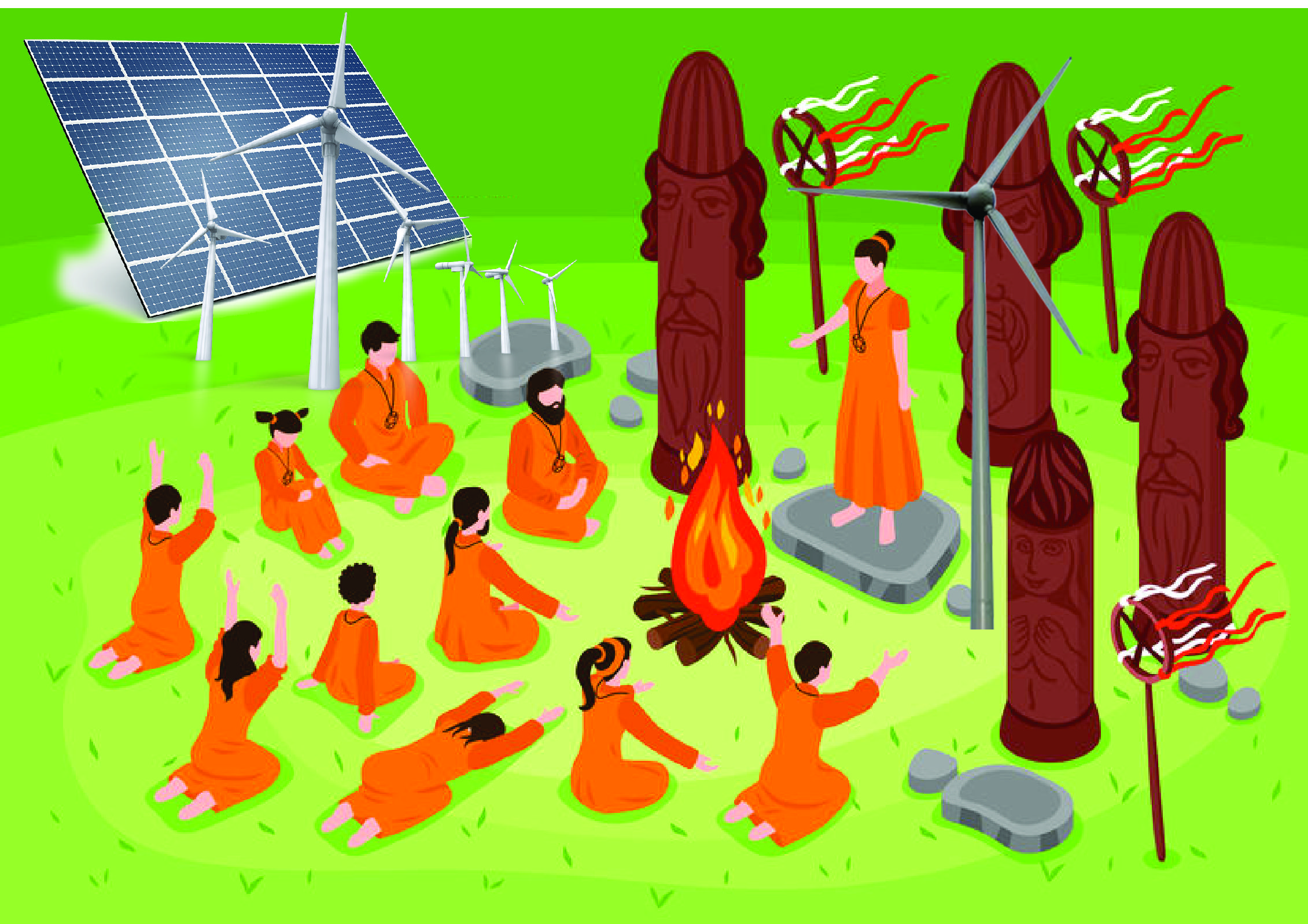As the seasons turn and the Earth breathes, our collective consciousness is drawn towards the poignant celebration of Earth Day—a solemn reminder of our custodianship over the planet. In a world beset by climate change, the intrinsic values embedded within the Bahá’í teachings illuminate the pathway towards a harmonious coexistence between humanity and the environment. This article explores the multifaceted role of religion, particularly the Bahá’í Faith, in fostering environmental stewardship and addressing the pressing challenge of climate change.
The intersection of spirituality and ecology is not merely a thematic juxtaposition; it is a profound interplay that necessitates deep contemplation. The Bahá’í teachings emphasize the oneness of humanity, evoking an image of a vibrant tapestry where each thread represents a unique culture, belief system, and individual spirit. This figurative loom weaves together a global tapestry of interconnectedness that underpins the urgency for environmental action. Indeed, the Bahá’í principle of the oneness of creation transcends mere rhetoric; it beckons individuals to recognize their role as integral components of the natural world.
In the cosmic theater of existence, every action reverberates through the delicate ecosystems of our planet. The teachings of Bahá’u’lláh, the Founder of the Bahá’í Faith, admonish humanity to safeguard the Earth’s bounty. These teachings resonate with the notion that the planet’s resources are not merely commodities to be exploited, but sacred trusts that must be protected for generations unborn. The allegorical significance of the Earth as a nurturing mother stands as a powerful metaphor; just as a mother tends to her children’s needs, humanity is called to tend to its planetary home, nurturing the environment with reverence and care.
From a Bahá’í perspective, the environmental crisis is intrinsically tied to the moral evolution of society. Bahá’í scripture posits that humanity’s collective spiritual growth must parallel its scientific and technological advancements. The Division of labor between these domains is eschewed, emphasizing instead a symbiotic relationship. The metaphysical evolution of consciousness entails an embrace of sustainability as a central tenet in both individual and collective decision-making processes. This perspective unfolds a call to awaken from the slumber of materialism, advocating for a shift towards sustainable practices essential for the survival of our planet.
The urgency of climate change implores religious institutions to become catalysts for change, advocating for policies that champion environmental integrity and social justice. Bahá’í teachings advocate for the unity of thought and action, encouraging adherents to engage actively in environmental activism. The assembly of believers is tasked with the responsibility to educate their communities about the convergence of moral imperatives and environmental responsibilities. Through grassroots initiatives and collaborative efforts, Bahá’ís strive to cultivate awareness, elucidating the complex interconnections between ecological degradation and social inequity.
Adherents of the Bahá’í Faith are encouraged to embody principles of sustainability in their everyday lives. Individual actions, while seemingly minuscule in the grander narrative, collectively shape the larger story of humanity’s relationship with the Earth. The metaphor of a single drop in the ocean symbolizes the power of individual contributions to the mighty tide of collective action. Environmental vigilance requires a steadfast commitment to sustainable practices—principles that resonate through intentional choices, from minimizing waste to embracing renewable energy. Each conscious decision creates ripples that extend beyond personal spheres, reverberating within the interconnected lifelines of diverse ecosystems.
Moreover, the Bahá’í teachings underscore the importance of consultation as both a moral imperative and an effective mechanism for decision-making. In addressing climate change and its socio-economic ramifications, diverse voices must converge, harmonizing discordant perspectives into a symphony of actionable strategies. This consultative approach fosters a climate of inclusiveness, engendering collaboration among individuals of varied backgrounds to formulate innovative solutions. The Bahá’í model of consultation transmutes conflict into cooperation, ensuring that no segment of society is marginalized in the discourse surrounding ecological preservation.
Earth Day serves as a poignant reminder of the interdependence between the spiritual and the environmental. At its core, Bahá’í teachings advocate for a universalistic approach to social and environmental challenges, viewing them through a lens that transcends geographical and ideological boundaries. The allure of this perspective lies in its ability to bridge divides, fostering a shared commitment to the well-being of the planet and all its inhabitants. As the winds of ecological change sweep across the globe, the Bahá’í Faith beckons humanity to unite in a concerted effort to heal the Earth—a call that is as urgent as it is timeless.
In conclusion, the role of religion, particularly the Bahá’í teachings, is analogous to the delicate thread woven into the fabric of our environmental future. As stewards of creation, followers are tasked with illuminating the path towards sustainability, drawing upon the rich wellspring of spiritual wisdom that underscores our interconnectedness. The call to action resonates profoundly, urging individuals and communities alike to embrace their roles as custodians of the Earth. This Earth Day, let us reflect on the profound teachings that implore us to safeguard our planet and cultivate a legacy of stewardship, commitment, and love for all creation.
